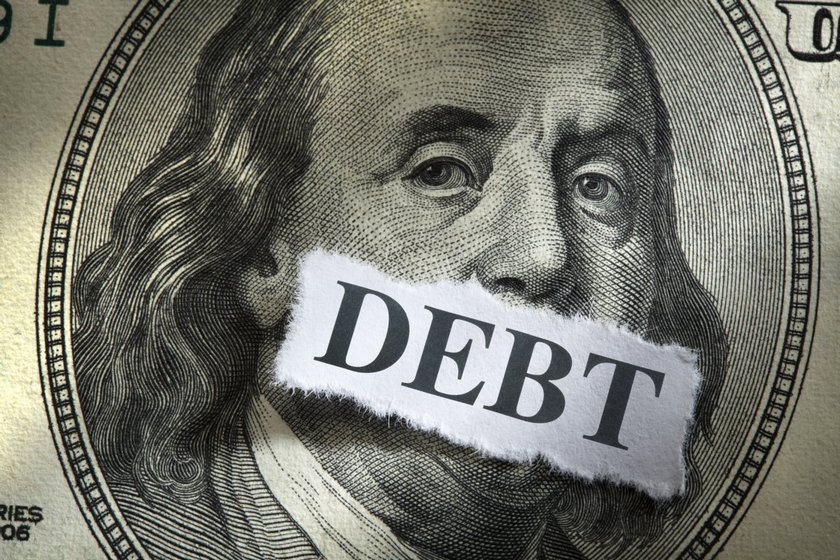In November 2009, after maxing out their credit cards, Alaya Linton and her husband, David Smith, were forced to confront their $74,000 in debt, a combination of $46,000 in student loans, $14,000 in credit cards, $10,000 in car loans and medical and tax debts. The Connecticut couple had a three-year-old and a 13-year-old, so the family drastically trimmed spending to pay off debt and start living within their means. [See: 10 Easy Ways to Pay Off Debt.]By December 2011, the couple was debt-free and Linton had discovered a new career path: Helping others slay their debt. She shares her insights on her personal finance blog Hope and Cents. U.S. News recently spoke with Linton about her debt repayment journey and how it inspired her to become a financial coach. The following excerpts have been edited for clarity and brevity: What motivated you to get serious about paying off your debt? A combination of things. For a while we just felt hopeless about our situation, and then we had a couple wake-up calls that kind of forced us to get serious. My husband's hours were reduced at his full-time job. Each time they were reduced we didn't make any adjustments, we just kept on living as if he had his full income, so that caught up with us and led us to relying on our credit cards more. After maxing [our credit cards] out one by one, we were left with one card. We literally used that card as a third income, so the second wake-up call came when that final card was canceled. We had no other way to support ourselves and our bad habits, so those events forced us to start living within our means.Did you have to get your husband on board with that new mindset? It took a while for us to be on the same page. My mindset started to shift a little bit as I got exposed to reading and … thinking around money. I tried to share that with him, and for quite some time he just resisted [shifting his behavior] and felt that we were fine as long as we were able to make our payments. I remember him having a lightbulb moment where we looked at our numbers and we saw that we were $2,000 in the hole every month. But he looked at me and said, "We can do this. We're going to get out from under this." Once he had his lightbulb moment, we were able to move forward together.[See: Your Month-to-Month Guide to Savings.]What sort of sacrifices or changes did you make?We changed our lifestyle drastically. One of the amazing things about our situation – or I guess one of the frustrating things – was that we didn't have big-ticket items or anything to show for our debt. We looked at all of our monthly expenses. We slashed our cable subscription. We looked at our insurance and saw where we were overinsured and cut back there. We learned that grocery shopping was a huge budget buster for us, and we were able to slash that by a few hundred dollars a month. We cut back on anything that was not necessary. If we didn't need to spend it, we didn't spend it, and that process just showed how much of our money we were wasting every month. We did bring in some extra income during that time. During the 2010 census, I worked that summer as a census worker and my husband also took on some freelance jobs, but the needle was moved majorly by just cutting back our spending.You were working in fashion when you started your debt repayment journey, but now your career has taken a different turn. Tell us about that. During that process, I just became extremely passionate and excited about the [debt repayment] process. It was almost like I was exposed to another world. I thought that you have to live with debt, and this process taught me that that wasn't the case. I started sharing this information with friends and co-workers. I would spend lunch breaks answering questions from friends and helping them work on a budget, and so I started informally coaching the people in my life. I realized how much I loved it. [I want] other people to know that even though our culture points to debt and to living beyond our means, we can live within our means and still live well. I trained to be a financial coach, and so currently that is a part of my full-time job. I transitioned out of the fashion industry and actually work in church ministry now, and as part of my job I coach people, and … [on the side] I coach people one on one.How did you stay motivated during those 25 months when you'd cut back so drastically? It was difficult. I wanted the debt gone immediately, and so that was a challenge for me, but what kept us motivated was tracking our progress. We were using the debt snowball method where you pay your bills off in order from the smallest to the largest, and so I literally had the paper of all of our bills on our fridge, and each time one was paid off I would cross it off with a big red marker. Sometimes, I would just stare at that list on the fridge and daydream about it. But seeing that progress and seeing each red line kept me motivated, and it showed us how far we went and how close we were to the end. We celebrated mini-milestones along the way, so when we paid off our credit card debt first, we gathered around and had a small $10 celebration with ice cream and, sometimes, a cheap bottle of wine. Having those kind of mini-milestones and then tracking our progress helped us stay motivated.[See: 8 Financial Steps to Take After Paying Off a Debt.]Anything you would have done differently? I'm thrilled with the pace at which we paid off the debt, but in hindsight I wish that I was more intentional about creating experiences for my family. We have two kids, and I wish I had been more creative in finding free or low-cost opportunities and experiences for us as a family. I think [it’s important to strike a balance where you] are accomplishing your financial goals but still you're prioritizing other things that are important like family. .





